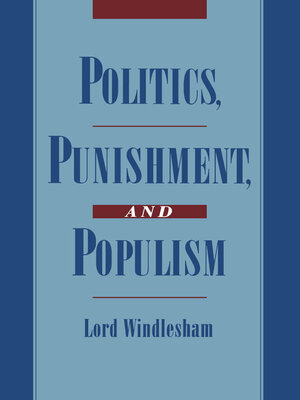
Sign up to save your library
With an OverDrive account, you can save your favorite libraries for at-a-glance information about availability. Find out more about OverDrive accounts.
Find this title in Libby, the library reading app by OverDrive.



Search for a digital library with this title
Title found at these libraries:
| Library Name | Distance |
|---|---|
| Loading... |
The Violent Crime Control and Law Enforcement Act of 1994 was arguably the most important legislative achievement of President Clinton's first term. In this detailed account, Lord Windlesham, a prominent legal scholar, British legislator, and Oxford College Principal, brings his experience to bear in analyzing the forces inside and outside the 103rd Congress, which shaped the final content of the Act. Controversial issues discussed include racial justice, "three strikes and you're out" and mandatory sentencing, the Brady Act and the assault weapons ban, the competing claims of prison building and prevention programs, drug policies, and restrictions on repeat sex offenders after release from prison. The narrative of Politics, Punishment, and Populism continues with the "Contract with America" and the crime policies adopted after the Republicans won control of both the House and Senate in the elections for the 104th Congress. The external pressures, and the Congressional tactics deployed to facilitate passage of such measures as the Antiterrorism and Effective Death Penalty Act, Megan's Law, and the Prison Litigation Reform Act, are examined in the second part of the book. Subsequent challenges in the courts are also reviewed, including some cases decided by the Supreme Court at the end of its 1996-97 term. The focal point throughout is the impact of populist opinion, as well as that of special-interest groups, upon elected representatives in the formation of public policy. The role of one of the most politically potent of all lobbies, the National Rifle Association, is assessed in the context of the competition it faces from an increasingly activist gun control movement. The book concludes by asking whether an end is in sight regarding America's isolated tolerance of lethal weapons.







